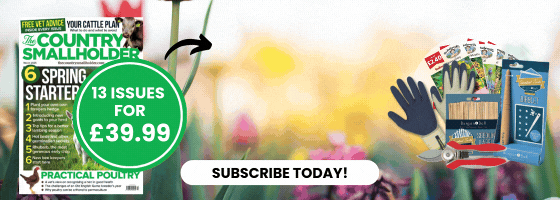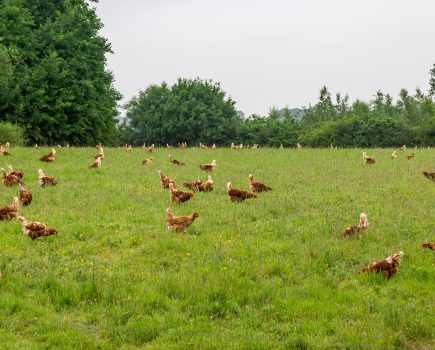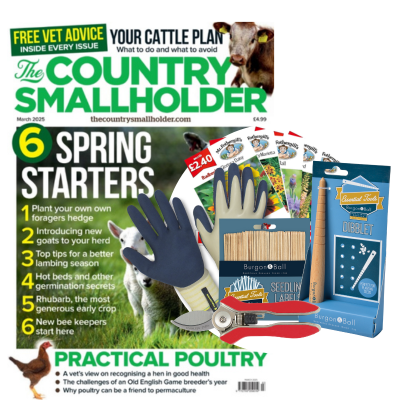There are some privileged chickens at a celebrated National Trust property in East Sussex. Sam Bowles investigated

Nestling in the beautiful High Weald village of Burwash in East Sussex lies the National Trust property Batemans House and estate. It was the home of celebrated writer Rudyard Kipling, famed for both his novels, short stories and poems alike, including Jungle Book, My boy Jack and If. More importantly, to chicken lovers, within the magnificent grounds live a flock of very privileged hens, owned by head gardener Len Bernamont. These lucky ladies, when not confined during the recent avian flu restrictions, enjoy the run of the meadows, orchards and mill area, living a natural free-range life and interacting with the visitors. For obvious reasons, they don’t have access to the formal gardens!
Len’s flock is a nice mix of hybrids and true breeds such as Cuckoo Marans, Light Sussex and Columbines together with his most recent additions, Buff Orpingtons. “Every day we get a lovely mixture of coloured eggs; some dark brown, some with speckles and some unusual green/blue ones,” he said. “With a good and varied diet, they are very tasty!”

“Allowing our chickens to free range by the mill and in the wild garden is a very traditional way of keeping hens and fits in perfectly with our ‘Spirit of Place’. In the past, estate workers, gardeners and, of course, the millers have all lived in the cottages by the mill and would have had their own area for growing produce, a small orchard and some livestock, including chickens and pigs. The hens, along with our beehives, are a great reminder of this part of the Batemans story.”
I asked Len if Kipling had ever kept hens himself? “We don’t know a great deal about whether or not Rudyard Kipling had anything to do with keeping hens at Batemans in his time. However, there is an old plan showing a chicken and duck pen in the garden near the Oast House, which was his garage for the Rolls Royce and is now our shop.” Given Kipling’s love of animals, everyone is sure that he would have, at the very least, shown an interest in the chickens and other farm animals based on the estate.

Len’s chickens have a dual use on the estate other than producing eggs. “Today, we are seeing many benefits to our hens free ranging. By scratching around under trees and in the grass all year long, they have steadily been spreading bulb and wild flower seed and have been instrumental in the marked increase in the flower content in the Wild Garden in recent years. They also keep some of the nasty bugs from our fruit trees and, of course, are a great talking point for our visitors. If you’re lucky, they’ll line up on one of the benches for a photo opportunity, but they might try to steal some of your sandwich in return. They don’t need feeding, though, as they get plenty of the right food from us and from the garden itself, but obviously it doesn’t stop them from trying!”
Since the avian flu restrictions were lifted, the hens have gone back to fully free ranging within the meadows, amongst the beehives and apple trees, and helping maintain the way of life that was traditional in Kipling’s time – and carry on delighting the many visitors with their antics.

MORE: Batemans is open to the public most days except for Christmas. Summer opening times are between 10am & 5pm.
See www.nationaltrust.org.uk/batemans for full details and estate events.

Image(s) provided by:
©National Trust Images/H Brought
Archant
Archant
Archant
Archant







